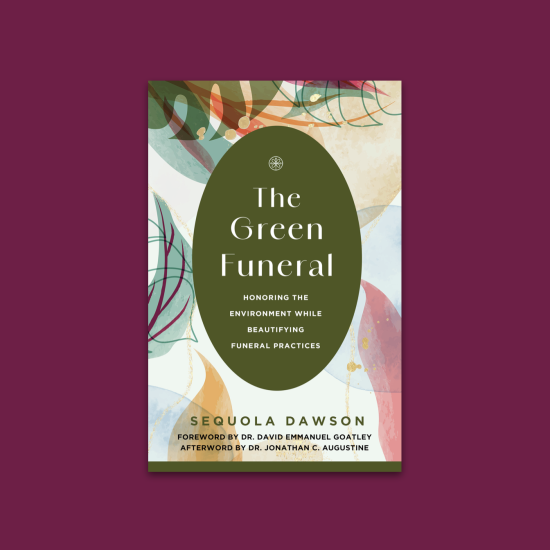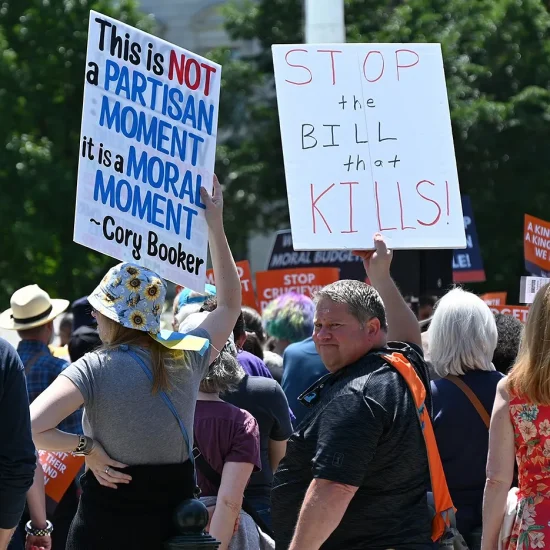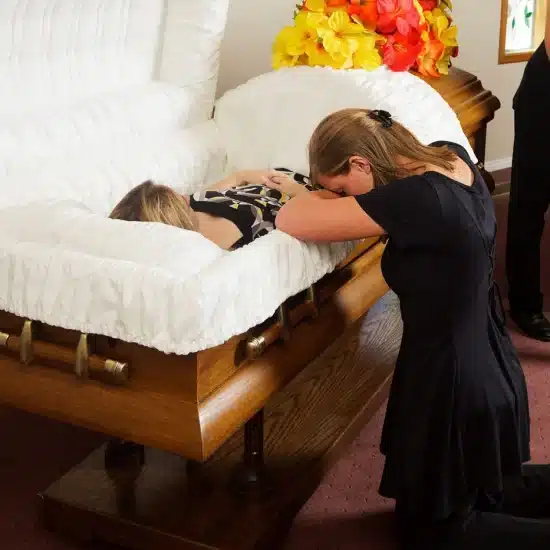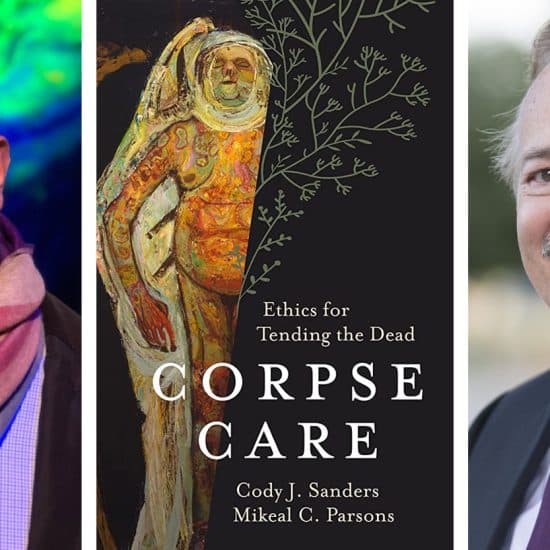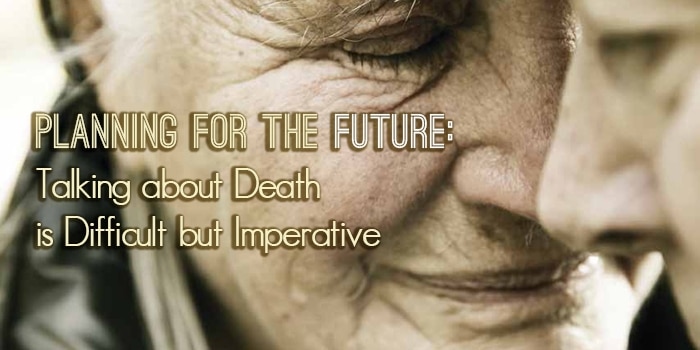
Important conversations are seldom easy to have. As a child transitions into adolescence, parents often dread “the talk.” Years later, roles shift and adult children are faced with starting another dreaded but critical discussion, one medical and legal professionals often call “the conversation.”
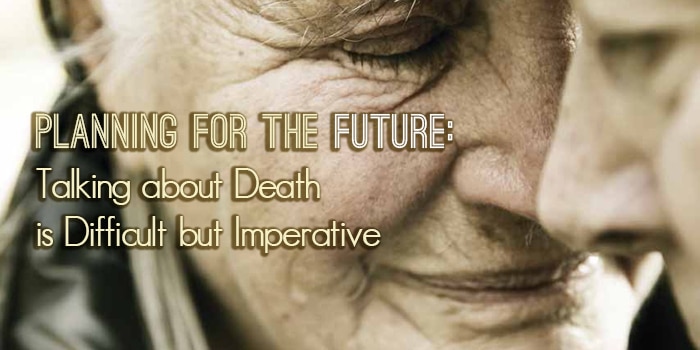 The Conversation Project, an effort that began in 2010 to help people talk about these issues, notes, “Studies show that while 90 percent of Americans say it’s important to discuss their own and their loved ones’ wishes for end-of-life care, only 30 percent actually do.” Other statistics reported by The Conversation Project are equally startling:
The Conversation Project, an effort that began in 2010 to help people talk about these issues, notes, “Studies show that while 90 percent of Americans say it’s important to discuss their own and their loved ones’ wishes for end-of-life care, only 30 percent actually do.” Other statistics reported by The Conversation Project are equally startling:
- 70 percent of people say they want to die at home, but 70 percent die in hospitals or institutions
- 90 percent of people say that talking with their loved ones about end-of-life care is important, but only 27 percent have done so
- 80 percent of people say that if seriously ill, they would want to talk to their doctor about wishes for medical treatment toward the end of their life, but only 7 percent report having had this conversation with their doctor
- 82 percent of people say it is important to put their wishes in writing, but only 23 percent have done it
“Families should be having these conversations around the dinner table, at home, or in the doctor’s office, before a crisis occurs, so that when a crisis comes, the decisions are already made,” said Vicki Boehmer, palliative care specialist at Missouri Baptist Medical Center in St. Louis.
Most people know they need a will to distribute their assets after death, though research suggests that only 4 out of 10 American adults actually have one. Most also know that they need other end-of-life plans in place, but they find it hard to talk to loved ones about those wishes. The conversation doesn’t have to be so hard.
“One of the healthiest things I see in some families is an intergenerational meeting, where mom and dad have plans in place and sit down with their kids to review it,” said Dave Keesling, founder of PhilanthroCorp, a Colorado-based Christian estate planning organization.
It is an opportunity for aging parents to share principles they have lived by in life that they want to carry on after death.
“These conversations establish a basic understanding of what is on mom and dad’s heart and the legacy they are going to leave both to their family and to ministries they support,” Keesling said.
Writing down one’s wishes for funeral and burial is a meaningful gift to one’s family, too, said Frank Fain, director of educational and senior adult services for The Baptist Home of Missouri, a ministry that provides residential care and educational services for the aging.
“When the family walks in and they have that in front of them, it’s a tremendous gift,” Fain said. “Those people who have worked all that out, they handle going into death better than those who don’t in my experience.”
Not knowing what to do is stressful for surviving family members, says Don Otto Jr., executive director of the Missouri Funeral Directors & Embalmers Association. Otto has seen families argue about dad’s favorite song or which suit he would want to be buried in.
“It sounds trivial, but these decisions are a huge stress factor when the family is going through the worst time of their lives,” Otto said. “Having the talk beforehand relieves so much pressure and uncertainty and at the same time opens up a wonderful conversation while the person is still alive about what was important to them, what they learned, and what they want to pass on to their grandkids.”
Medical issues — specifically, what treatment options are desired and who gets to decide — can be addressed in advance with two legal documents:
- A health care proxy (also known as a durable power of attorney for health care) which grants authority to another person to make health care decisions if a person is unable to communicate their wishes
- An advance directive (also known as a living will) which allows an individual to specify what types of end-of-life medical care (if any) are desired if the person is unable to communicate those preferences.
Having these documents in place can reduce stress during a loved one’s final days, Fain said. He also offered other tips for helping family members deal with the decisions that follow a death:
- Review your will and/or trust every two years. Update as needed and tell someone where the document is stored.
- Make sure someone can unlock your safety deposit box. Often important documents like life insurance policies are stored at the bank, where only an authorized user can gain access. Adding an authorized user generally requires both parties to sign a document.
- Write down your family history, former places and dates of employment, educational institutions attended, military service, and people who should be notified in the event of your death.
Ensuring that plans are in place and that those who will carry out those plans are informed is not only an act of love, it is also an act of grace, the principle behind Conversation Sabbath. Now in its third year, Conversation Sabbath is a time for clergy to encourage congregants to view end-of-life issues in light of their faith and values and to initiate conversations with their families that will preserve peace in difficult times.
“Clergy see too often how avoiding conversations about end-of-life care can leave family members in the dark,” according to a fact sheet from The Conversation Project. “It is a gift to our loved ones to talk about what matters — sharing information and not leaving them in the dark. Preaching and teaching are ways clergy can help congregants to ground conversations about the kind of care we want in values and faith. Talking about a topic that touches us all — the reality of our mortality — is a pathway to a mature spiritual practice.”
Carrie Brown McWhorter writes for several publications, including The Alabama Baptist newspaper and Missions Mosaic magazine. Find her on Facebook @McWhorterMedia or visit her website, carriebrownmcwhorter.com.

